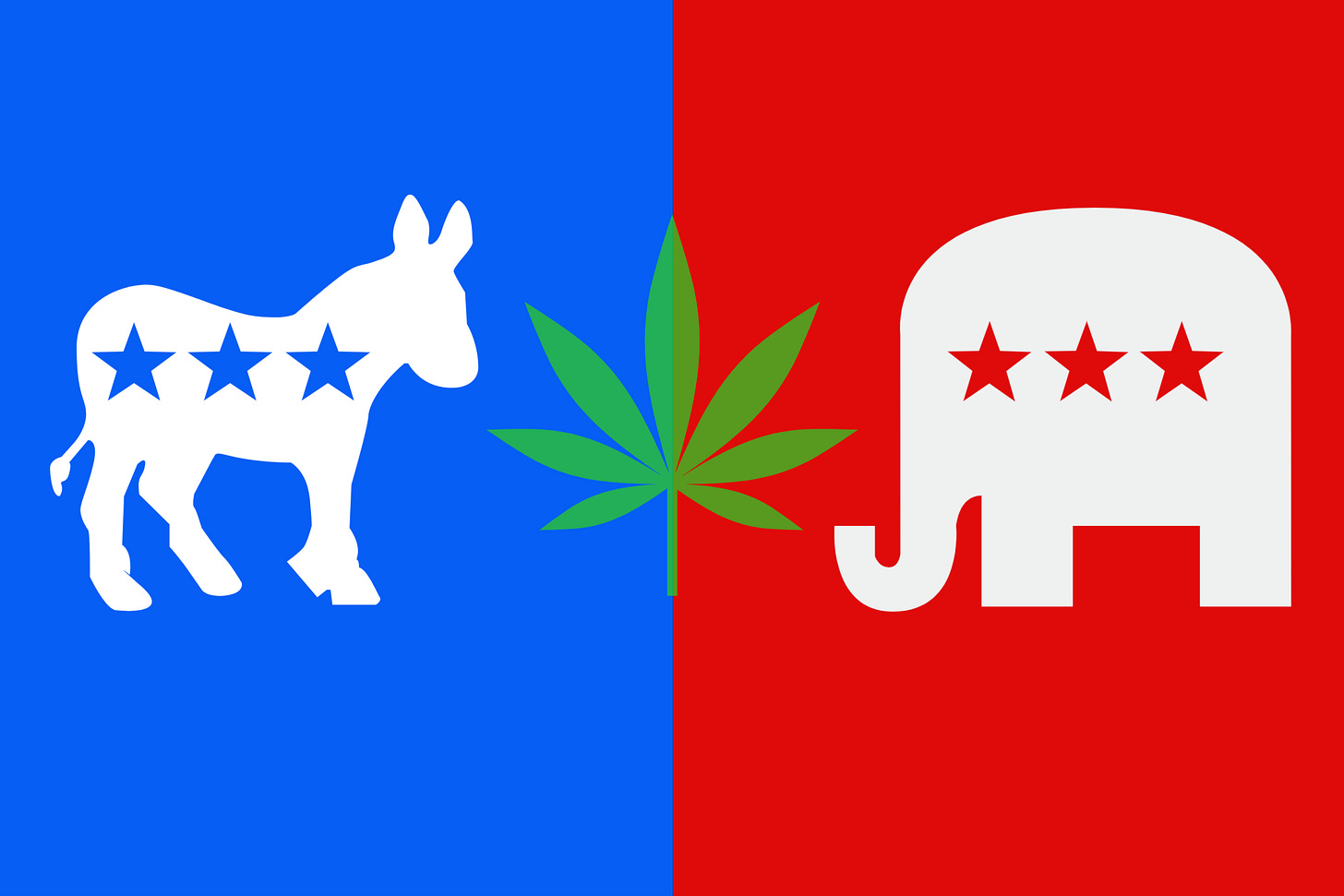GCM Newsletter | March 8, 2021
Capitol update: Winners and losers of the OK cannabis bills so far in 2021
Lawmakers are entering their sixth week of the 2021 Oklahoma Legislative Session. The life and death of any proposed cannabis bills are ruled in part by key deadlines. Now that those deadlines are coming and going, it’s possible to make some better assessments of what might actually become law and ultimately a new cost or regulation for Oklahoma cannabis businesses.
These proposals come as the cannabis industry across Oklahoma now has just 53 days as of this writing to become compliant with the state’s program for tracking plants and products. Welcome to legal cannabis in the great state of Oklahoma. Having fun yet?
Your step-by-step guide for getting a cannabis business license in Oklahoma
The great state of Oklahoma has a reputation for loving free markets and loathing the excessive government regulation of private enterprise. But that’s not the case when it comes to anything perceived as vice. Political rhetoric about aiding small businesses has its limitations.
I’m a proud patient-license holder. But I have no desire to own or run a cannabis business. In fact, I worked as an hourly employee last year for several months at a grow in Oklahoma. The cultivator seemed reasonably convinced that I was trying to acquire knowledge in order to launch my own grow.
I was definitely trying to acquire knowledge. But it wasn’t to endure the bureaucratic nightmare that is getting a cannabis business license.
I’m pretty much doomed to a lifetime of journalism and media. So I decided to do what I do best and sit down and spend a terrifying amount of time researching and compiling in one place just what it takes to get a cannabis business license in my beloved home state of Oklahoma.
It took a full day of research merely to get a sense of the basic regulatory costs and fees you pay for the privilege before even getting to the everyday costs that all small businesses face.
It’s true that Oklahoma has lower barriers of entry to the cannabis industry compared to other states. But that doesn’t mean we make it easy for would-be entrepreneurs. The 10,000 licensees in Oklahoma who have managed to decrypt the bureaucratic cypher so far are persevering geniuses to me.
And with several proposed rule changes for cannabis pending at the statehouse, I’ll have to update this post throughout in mere months as lawmakers decide what they want.
Everything we know about the (now 53) days OK cannabis has to comply with Metrc
The clock is ticking for Oklahoma’s over 10,000 cannabis businesses to comply with a tight deadline of fully adapting to the regulatory software of Florida-based Metrc for tracking and tracing every medical marijuana plant and packaged product in the state.
Oklahoma cannabis businesses have between now and April 30 to become fully compliant with Metrc’s seed-to-sale tracking software and radio-frequency tracking tags. That means having all inventory and transactions tracked by Metrc’s system by then, whether your cannabis business has an inventory of 50 plants and product packages or 50,000. Read on below to better-understand the process.
Cannabis reform probably won’t happen in Congress this session
I was skeptical from day one of the Biden Administration that we would see federal cannabis reform -- comprehensive or otherwise -- during this session of Congress. But I understood and sympathized with the surge in optimism that occurred in the cannabis world.
The reasons for why I remain doubtful it will happen this session are myriad and mostly poltical. Now there’s a new reason to see the possibility of federal cannabis reform dimming for the current session.
The vote in Congress on COVID-19 relief was narrower and more partisan than a lot of political observers had anticipated. Major cannabis stocks were flourishing at the height of the pandemic as bored Americans bought record-breaking quantities of weed.
But enthusiasm from investors on the chances for major action from Congress and the White House in the near-term started showing signs of cooling last week. There’s no axiom in investigative reporting more reliable than “follow the money.”
With the vote so close on pandemic relief, Democrats will have fewer reasons to spend precious political capital on cannabis reform over the innumerable other issues facing them without being sure how many Republicans would join. The Democrats will have to choose where cannabis fits within COVID, the economy, the environment, immigration, and probably a few others I’m forgetting.
Even if the Democrats tried to rush a vote on something, any congressional outcomes could leave states largely in charge of deciding the pace and regulation of cannabis reform under state law.
Of course, I’d love to be wrong about all of this. We could at least begin returning people to their families from long prison stretches for crimes the vast majority of Americans now consider to be far less serious if crimes at all.
Rapid adoption of cannabis reform by even ruby-red states shows that many Americans are simply reevaluating whether cannabis ever should have been so severely criminalized in the first place. This shift in public mood is very much occurring in other countries, too.
It’s not outright opposition in Congress to cannabis reform that the cannabis industry should worry about. It’s political priority and the agenda-setting process. Senior Democrats have signaled repeatedly that cannabis reform is a priority during the two years they’re in an assured position to advance it. But two years in Washington is the blink of an eye.
New numbers show America is buying more cannabis than ever
Meanwhile, America officially bought a record amount of legal weed last year. Sales reached $17.5 billion. That’s double Gov. Kevin Stitt’s proposed state budget for Oklahoma this year.
In fact, here in Oklahoma, medical cannabis generated nearly $40 million more in tax revenue around the state than alcohol last year, which is truly astonishing for a state that doesn’t shy away from a stiff drink. Forbes probably had the best take on these new nationwide cannabis numbers:
“Josh Bubeck, the cofounder of Urbn Leaf, a seven-store cannabis retailer based in southern California, says 2020 has been a difficult year, but his company hit record sales. … [An] aspect that buoyed his business is the enforcement of cannabis regulations, a sign that the market is maturing. The company’s shop in San Ysidro, which sits just north of the border with Mexico, was surrounded by dozens of illegal dispensaries until last year, when the city of San Diego shut them down. All that foot traffic made its way to legal stores like Urbn Leaf.”
GCM Roundup | Oklahoma and Beyond

At almost 17,000 statewide, there are now more medical-cannabis employees than construction workers in Oklahoma.
It’s a bad idea for the state of Oklahoma to place a cap on the number of cannabis business licenses in the state, says the National Organization for the Reform of Marijuana Laws, better known as NORML.
Oklahoma is one of only four states where consumers can get a hold of Ice Cube’s new select strain of cannabis, “Fryday Kush.”
Indoor cannabis cultivation is generating a worrisome carbon footprint that isn’t pretty for the planet, according to a new study from researchers at Colorado State University. The science news site Gizmodo couldn’t resist a punny headline about the study: “Indoor Weed Farms are Hotboxing the Planet.”
The number of banks willing to do business with the cannabis industry isn’t going up, but at least it appears to no longer be going down.
New pro-reform ads from rapper Jay-Z’s Monogram cannabis brand point out an amusing fact: “You can marry your first cousin in more states than you can buy recreational weed.”
Taxes from cannabis in Michigan have been enough so far to cut $23 million in checks for the state’s education and transportation funds.
A former senior executive from several major companies including PepsiCo is joining the cannabis-infused beverage startup BevCanna. Meanwhile, a 20-year veteran executive of the Walgreens drugstore chain has joined the fast-growing cannabis company Parallel led by the billionaire heir to the Wrigley’s chewing-gum empire.
The cannabis industry is seeing a surge in union organizing.
A judge in San Diego rewrote felony marijuana convictions for 26,000 people down to much-less onerous misdemeanors with the wave of a pen. Why can’t Oklahoma do the same thing?
Listening to: MF DOOM, Madlib “Rhinestone Cowboy” Reply with an email or sign up to receive alerts. Follow Green Country Monitor on Twitter, Facebook, LinkedIn, and Instagram. If you appreciate this work, consider leaving a tip.








